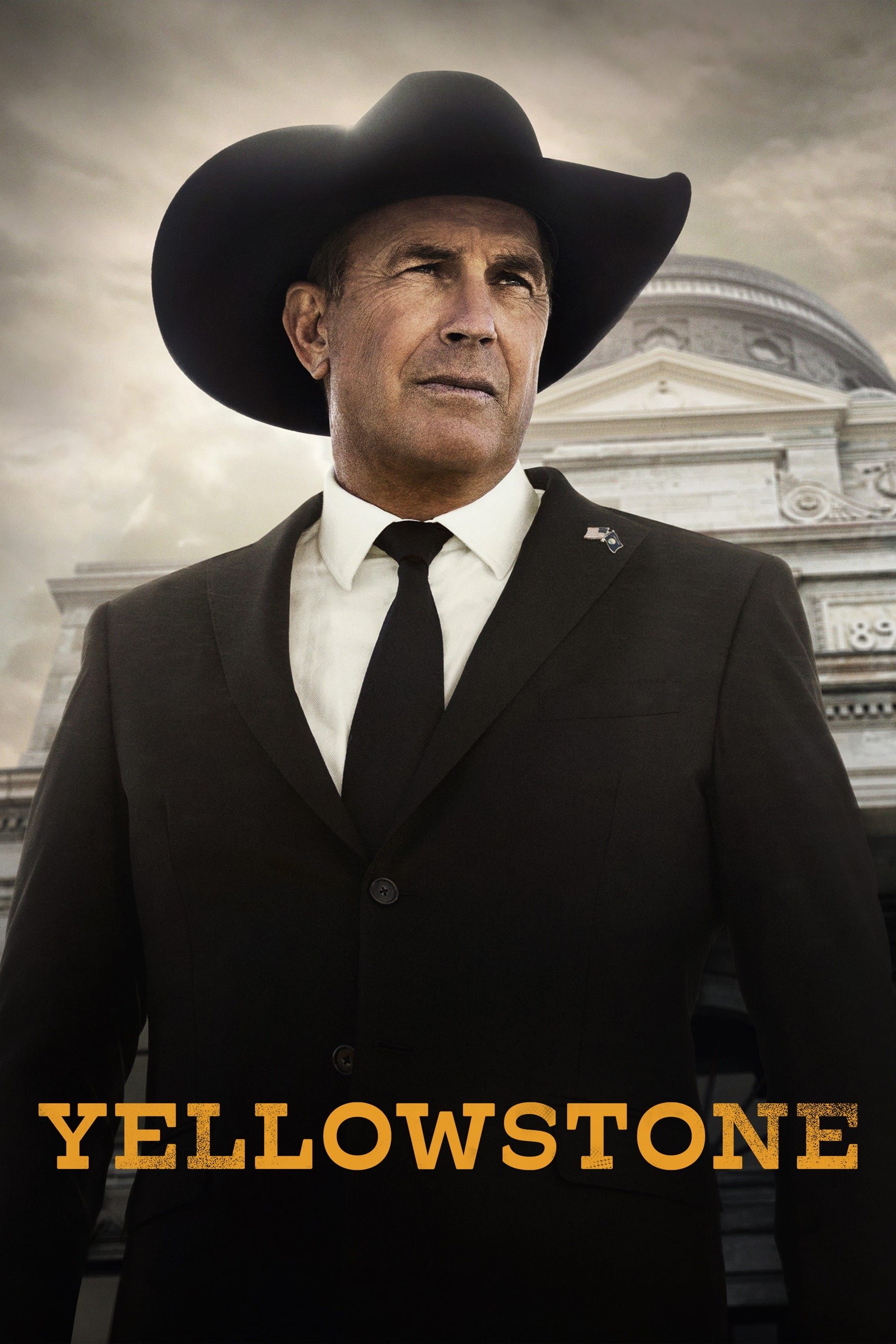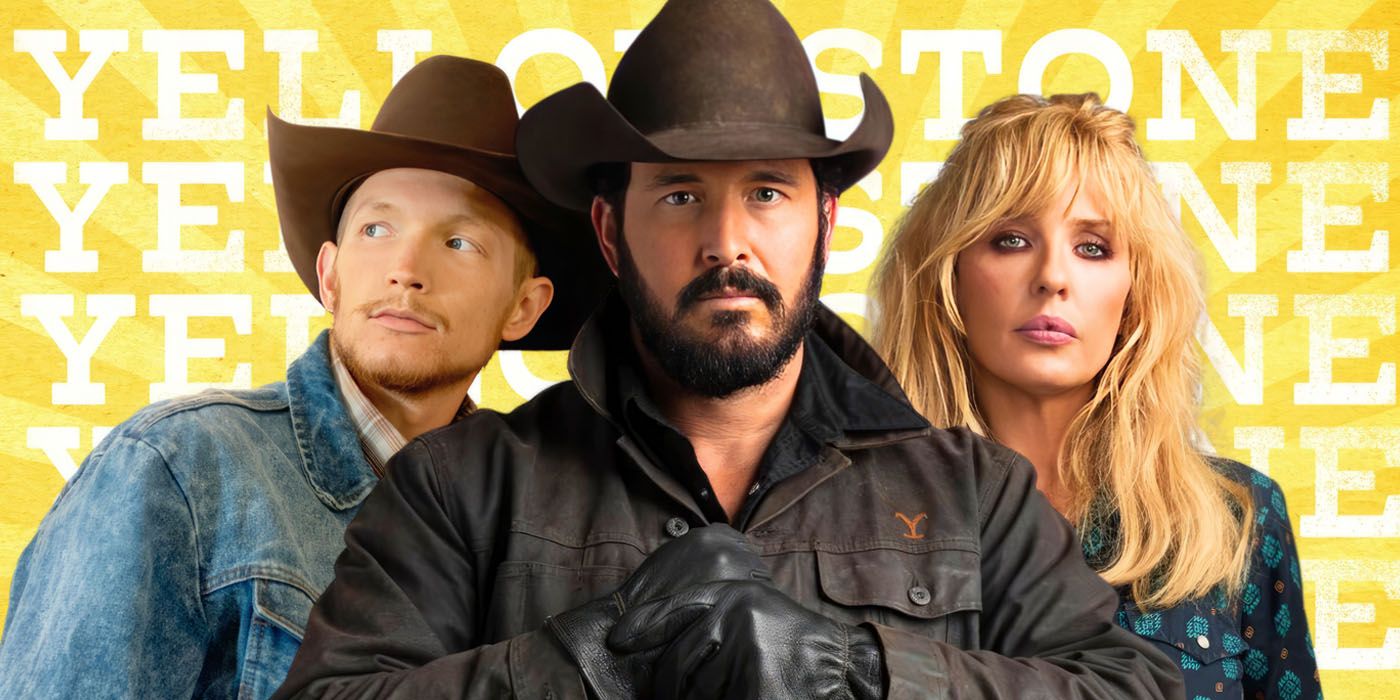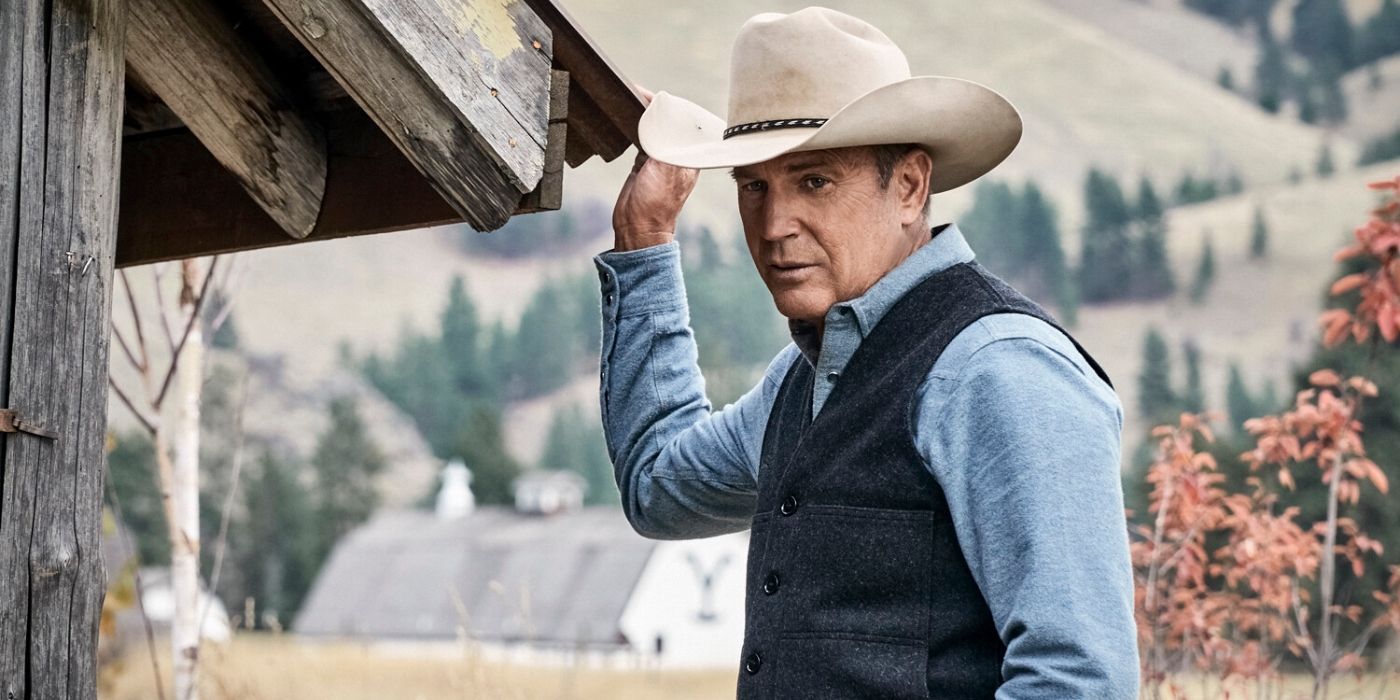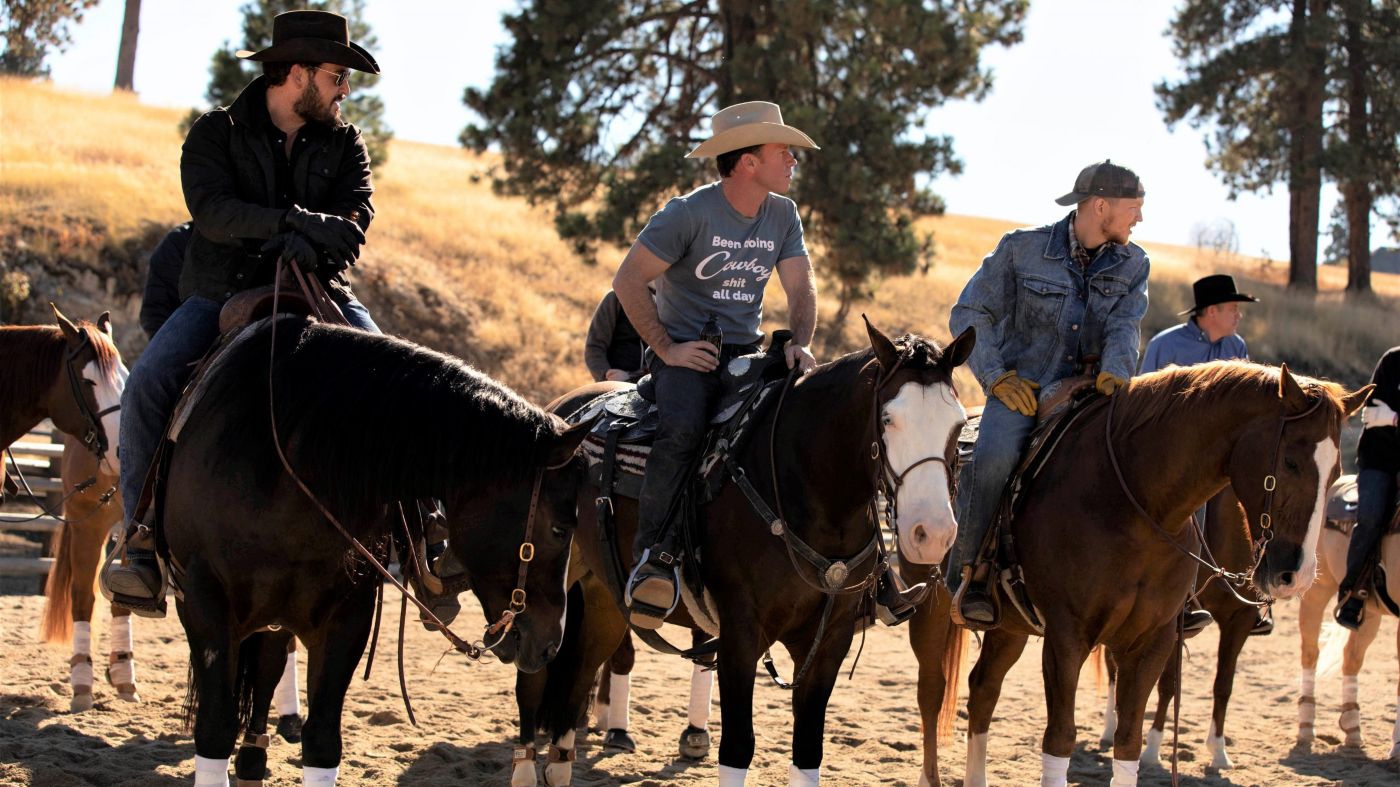The Big Picture
- Taylor Sheridan's success with Yellowstone and other projects solidifies his position as one of the most sought-after creators in Hollywood.
- The appeal of Yellowstone lies in its exploration of the American myth of the West, showcasing themes of freedom, justice, and the consequences of violence.
- Yellowstone resonates with audiences because it tells working-class stories and highlights the struggles and values of everyday people living in rural areas, giving a voice to the often-overlooked demographic.
Since the Taylor Sheridan-helmed Western drama Yellowstone premiered on the Paramount Network in the summer of 2018, the series rose to prominence relatively quickly. Ignoring the initial wave of mixed-to-negative reviews upon release, the series, which is ending with Season 5, was a hit with audiences and by Season 3 and became one of the most-watched shows in America. Everyone who's heard of Yellowstone has their own opinions on the show, but love it or hate it, there's no denying that Sheridan's overnight takeover as one of the most sought-after creators in Hollywood has largely been met with a desire for more.
If we could say anything about Taylor Sheridan, perhaps best well-known before Yellowstone as the scribe behind Sicario, Hell or High Water, and Wind River, it's that the cowboy-turned-actor-turned-filmmaker seems to know what he's doing. If this wave of prestige Western and blue-collar dramas is indeed a limited run, then Sheridan's getting his money's worth before the clock runs out. Yellowstone prequels 1883 and 1923 were instantly met with favorable reviews as they returned to the traditional Western format (the latter being Paramount+'s biggest series debut), while Sheridan's other projects, Mayor of Kingstown and Tulsa King, which star Jeremy Renner and Sylvester Stallone respectively, have made waves themselves, earning sophomore seasons almost immediately. Needless to say, folks love what Sheridan brings to the table, and for good reason.
Yellowstone itself takes place primarily in Paradise Valley, Montana, a beautiful and lush mountainscape that seems as endless as the show's ever-long-running summer. As someone who has spent the better part of his adult life in Bozeman, Montana (another primary setting for the Paramount series), it's easy to tell the difference between the fact and the fiction of Yellowstone's depiction of the "Last Best Place," but regardless of the small inconsistencies (which there are in everything since most screenwriters hail from Hollywood), that doesn't stop one from suspending their disbelief enough to engage in Sheridan's rocky and often violent world. As the most-watched series on cable (surpassing even The Walking Dead before it ended its eleven-year run), Yellowstone has made a name for itself, but what does its popularity say about America?

Yellowstone
A ranching family in Montana faces off against others encroaching on their land.
- Release Date
- June 20, 2018
- Creator
- John Linson, Taylor Sheridan
- Cast
- Kevin Costner , Kelly Reilly , Luke Grimes , Wes Bentley , Kelsey Chow , Cole Hauser , Gil Birmingham , Danny Huston
- Main Genre
- Drama
- Seasons
- 5
'Yellowstone's Appeal Lies in its Western Roots
To understand the appeal of Yellowstone is to understand the American myth of the West. In this country, there is a continued tradition of post-Civil War myths that are retold again and again, even in contemporary times. In fact, other genres, including science-fiction, are often rife with Western tropes; it's ingrained into American society, and by extension modern filmmaking as a whole. Yellowstone, a neo-Western itself, is naturally no exception. In fact, its popularity seems to prove this point all too well. In the past, Hollywood made history with the Western, producing more a year than any other genre combined. Films like Stagecoach, The Searchers, True Grit, and plenty of others are still highly beloved today and remain influential nearly everywhere movies are made. No wonder Australian, Italian, and Indian cinema, among others, have often adapted these Western legends themselves.
There’s something to the Western that seems forever appealing. Basic human ideas of freedom, liberty, family, vengeance, and justice flow through the genre like streams of rushing water; you can’t really tell the myth without it. Sheridan clearly understands this as Yellowstone and its prequels are no different, except for maybe the fact that the dysfunctional Duttons tend to avoid paying their dues year after year. Other Western themes, such as the mistreatment and struggles of Native Americans, the harsh realities of cowboy living, the consequences of violence and stolen land, and the battle against progress are also clearly depicted on Yellowstone, which has only helped open the door for more stories like these to be told in the future. No wonder a more traditional Western like 1883 was so popular.
'Yellowstone' Benefits From Having Western Star Kevin Costner
Of course, Yellowstone also holds one of the most recognizable faces in the genre not named John Wayne or Clint Eastwood, at least in a modern context. Kevin Costner, known for his Westerns Dances With Wolves, Open Range, and Wyatt Earp to name a few, has gained newfound popularity through Yellowstone as he plays the tough-as-nails ranch tycoon John Dutton. Dutton is not only on a path to protect his family’s long-standing way of life but that of the entire state of Montana as well (ironic, given that the series' popularity has pit lifelong Montanans against the same folks that the Duttons fight against). Naturally, Costner’s presence and experience with the genre was, ahem, paramount to the show’s success, pulling in those who might’ve never otherwise heard of the neo-Western series.
No doubt, people are hungry for Westerns again, as made evident by the recent resurgence in the genre. Admittedly, it's never fully gone away and may never be as prolific as it once was, but it's certainly more popular again than it's been in years as Yellowstone (and other shows like it) allow for the further romanticization of the way of life out in the West. Sure, there’s something slow, profound, and especially beautiful about the Western United States, but people there often live tough lives. Thankfully, Sheridan and company hold nothing back, giving us rough-around-the-edges characters like cowboys Rip Wheeler (Cole Hauser) and Lloyd Pierce (Forrie J. Smith) to chew on.
'Yellowstone' Focuses on the Working Class
There's a slow-building movement throughout Hollywood that is opening the door for different sorts of stories to be told. After decades of shows set in big cities on either coast (particularly Los Angeles or New York), audiences throughout middle America have grown tired of these characters and settings with whom they have little to nothing in common. Instead, they'd prefer to cling to stories about your everyday average people living in average places (i.e. not big cities). Shows such as Friday Night Lights, Longmire, Last Man Standing, and even a show like Bob's Burgers prove time and again that the audience for these sorts of working-class, and often rural, misadventures is there, and will show up for something they deem worthy of their dollar. Interestingly, HBO's Succession, set in New York, shares many parallels with Yellowstone, though the latter show's vast landscapes and Western aesthetic set it apart as a bit more interesting.
Yellowstone itself relies heavily on the workings of the Dutton's Yellowstone Ranch that borders Paradise Valley, the fictional Broken Rock Indian Reservation, and America's first national park. Within this ranch lies a bunch of hard-working cowboys who spend their days on horseback and their nights playing poker in the bunkhouse or dancing at a local bar. Though not everyone on Yellowstone is a blue-collar worker — Wes Bentley's Jamie is a skeezy lawyer and the ever-controversial Beth Dutton (Kelly Reilly) is a private financier — the overall message of the series exudes working-class rhetoric. Given that so very few shows touch on cowboy life, it's admittedly refreshing to watch one that centers on it, especially given Sheridan's own life experience as a real-life Texan cowboy.
The slow rise of blue-collar stories that highlight the working class of farmers, ranchers, industrial workers, tradesmen, those in rural law enforcement, and members of the armed forces is understandably appealing to those who feel their voice is rarely heard by the mainstream media. Adrian Horton of The Guardian noted that "[Yellowstone] performed particularly well in smaller cities whose agricultural foundations resonate with the show’s bread-and-butter sequences of ranching and focus on property disputes." She goes on to list smaller cities in Texas, Idaho, Iowa, Kansas, Kentucky, and, naturally, Montana where Yellowstone consistently plays well. This should come as no surprise given the show's highlight on small-town issues and attitude towards the wealthy, coastal elites. It's clear that the backbone of America is going to show up for something that promotes their strenuous way of life — even if it often skimps out on their morals.
Of course, there's a good chunk of moviegoers and television connoisseurs who can rightfully acknowledge that Hollywood often seems out of touch with its blue-collar audience. The amount of high-budget box office bombs and one-and-done seasons of television prove that a fact rather than some sort of politically-charged fiction. However, Yellowstone's ever-growing audience coupled with the show's presence on the Paramount Network and Peacock streaming service has turned this once-maligned series into a powerhouse drama that brings in unprecedented numbers for a series of its caliber. Thankfully, it seems to be inspiring other networks and studios to look into reaching the same demographics.
Yes, 'Yellowstone' Is a Little Political (No Matter What Taylor Sheridan Says)
Montana is one of those places that, once you’re there, you don’t really want to leave. There’s something about the “Big Sky Country” that appeals to your inner desire to survey creation, get your hands dirty, and live off the land. Of course, for many, that’s just not a reality, nor could it be. Thus, Yellowstone is something of what The New York Times author Tressie McMillan Cottom rightfully calls a “conservative fantasy,” but that's not exactly a bad thing. For most, this just means a desire to own a home and land, to fight for your family and legacy, and ultimately to conserve what you've worked so hard to build.
Conservatives rarely get their due in Hollywood, and shows that accurately highlight conservative talking points are even more obscure. Yellowstone, however, isn’t afraid to tell things like they are, which is part of the appeal. John Dutton and his ilk don't mince words, especially with those who encroach on their livelihood. While some may see this type of dialogue as "lacking," others see it as realistic. The series sheds light on real and pressing issues that people in Montana, and places just like it, face, issues that speak to conservative audiences because they live them day in and day out. The entire plot of the series is that the Duttons are fighting to literally conserve their way of life while highlighting their “pull yourselves up by your bootstraps” attitude as they work against the "progress" that threatens to re-shape their land. The ideology is clear.
Prime Video's The Terminal List, another "conservative" show headlined by Chris Pratt, similarly received mixed reviews upon the release of its first season, though it's been a hit with audiences. In response, author Jack Carr, who wrote the original novel, told The Hollywood Reporter that, "[The Terminal List's] 95 percent...audience rating, makes it all worth it. We didn't make it for the critics. We made it for those in the arena." The more popular Yellowstone gets, the more likely these more right-leaning stories are to be told in the future. In an ever-growing world full of an endless supply of content providers and streaming services, there's certainly room out there for everyone.
Admittedly, Sheridan has pushed back on the “conservative” label, no doubt to avoid alienating other audiences, but that doesn’t stop those from America's heartland from tuning in, nor does it sever the show's ties to greater conservative culture. In fact, if anything, Yellowstone has served as a gateway for other stories of the same merit to be told. Be they Westerns, crime dramas, or simply more "traditional" right-leaning stories, the Yellowstone effect has become clear. The Terminal List is only one example, but there are others too, such as Prime Video's Outer Range, AMC's Dark Winds, and Joe Pickett. So what does Yellowstone's popularity say about America? Well, it says what we've already known: that the dreams of the West aren't dead, that the working class has finally been heard, and that left-wing politics are only one side of the equation. With all of Taylor Sheridan's shows currently in development, and plenty of other Yellowstone wannabes out there, there's no question that Paramount's flagship series will outlive its time on the air.
Yellowstone is available to stream on Peacock in the U.S.



